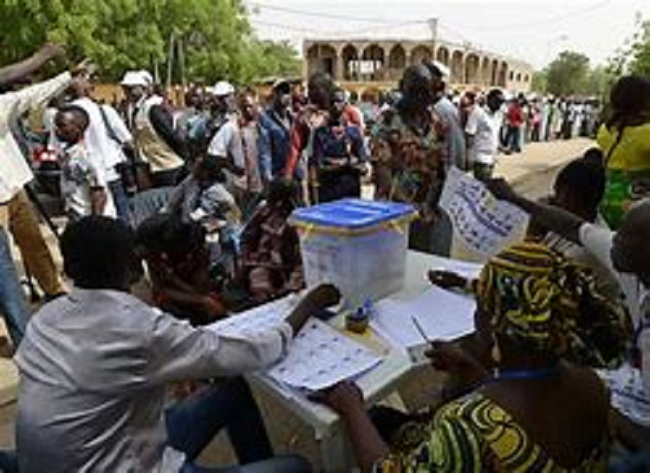If citizens want to take part in the 2023 elections, it is imperative that they get their Permanent Voters Card (PVC) or they will not be allowed to exercise their fundamental and constitutional rights to vote.
That was the main message of a rally organised by the Yobe State chapter of the National Youth Service Corps.
Members told RNI that they had held the public awareness campaign in Damaturu, the capital of Yobe State, to educate the public about the importance of obtaining their PVC ahead of the 2023 general elections.
Umar Chiroma, a corps member, said: “The main purpose of the campaign was to create public awareness and to advise individuals to collect their PVCs if they wanted to take part in the elections.
“If people do not have their PVCs, they will not be able to participate in the elections. We, as members of the corps, decided to hold the rally to mobilise people. The elections are not too far away and it’s imperative that people get their PVCs.”
“The campaign was part of our community development services. We are doing our best educate, enlighten and inform the public. The PVC is a tool that enables every citizen to vote for the candidate of their choice at the local, state and federal levels in the coming elections, which is their constitutional right,” said Mohammed Aja Maina.
Ahmed Alhaji Ahmed said: “No PVC means no vote. No one will be allowed to take part in the elections without a PVC. Right now, there are thousands of uncollected PVCs in Damaturu and that is what prompted the corps to hold the rally. The only way citizens can bring about transformational development and good governance is to vote in the democratic elections that are around the corner.”
- According to the Independent National Electoral Commission (INEC), a PVC stores information, such as biometric data, including physical attributes and thumbprints. It protects the information stored in the cards, which are programmed and can be read or assessed only by an electronic card reader.
The INEC was established by the 1999 Constitution of the Federal Republic of Nigeria to organise elections into various political offices in the country. It registers political parties; monitors the parties’ operations, including their finances; arranges annual auditing of the funds of political parties; arranges and conducts the registration of people qualified to vote; monitors political campaigns, providing regulations to govern political parties; conducts voter and civic education; and promotes knowledge of sound democratic election processes.
SHETTIMA LAWAN MONGUNO









